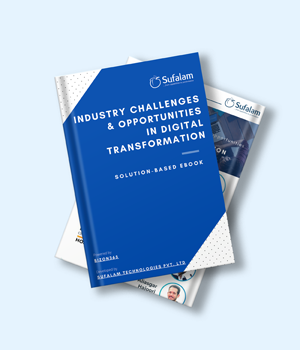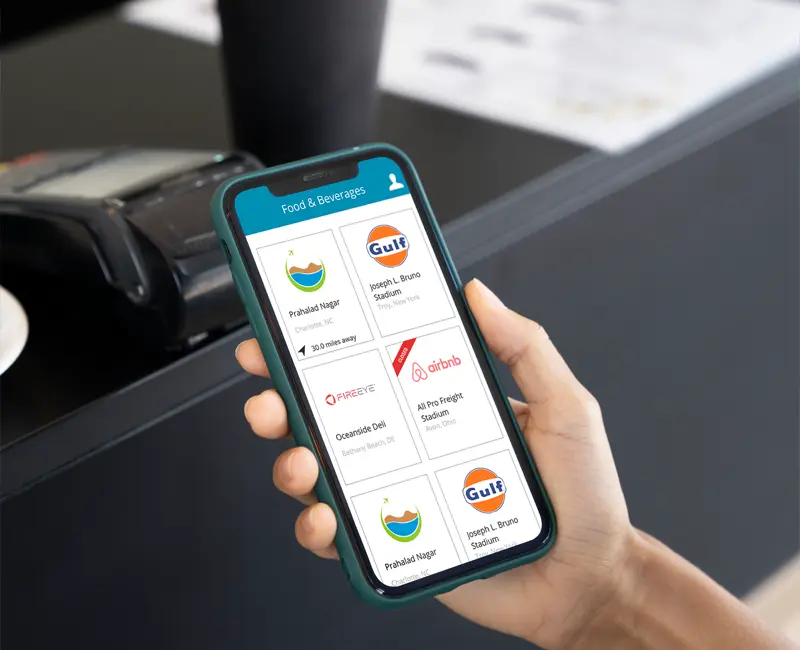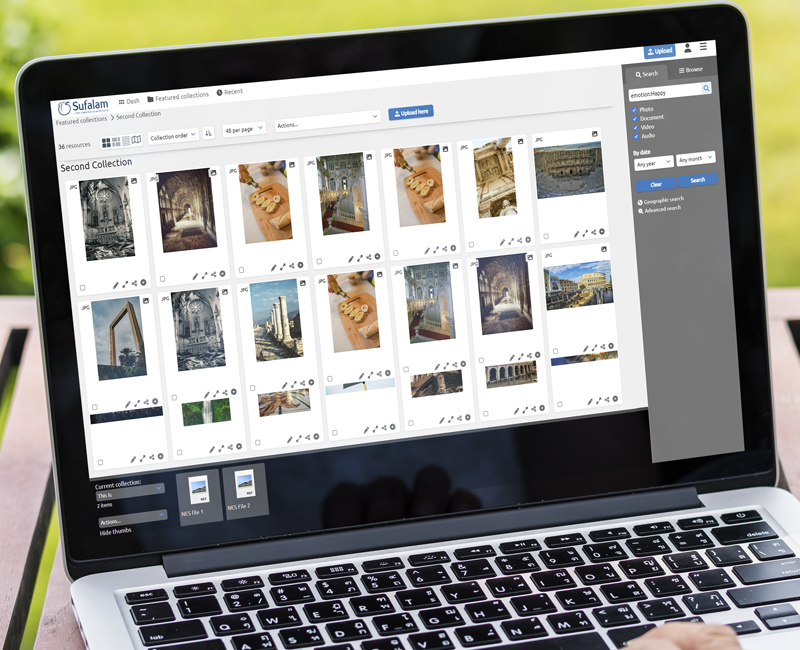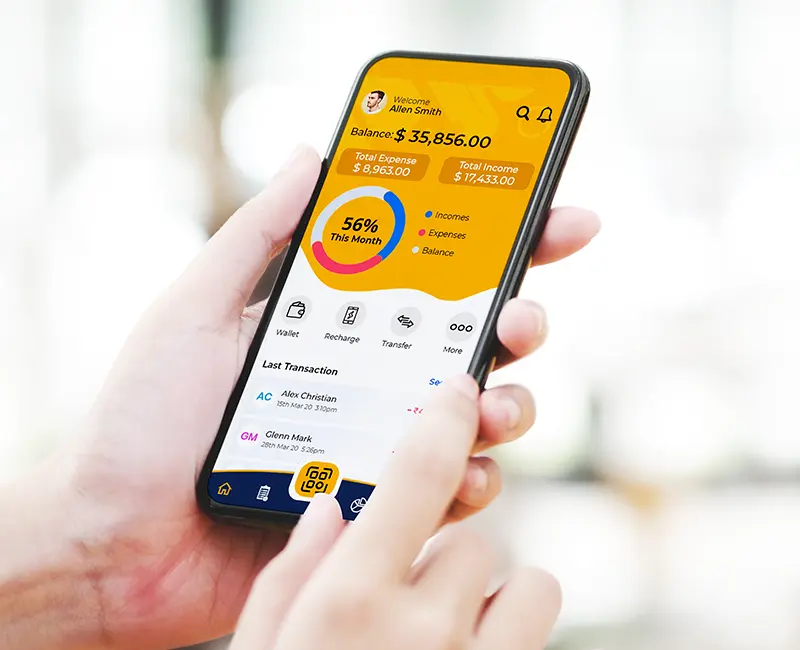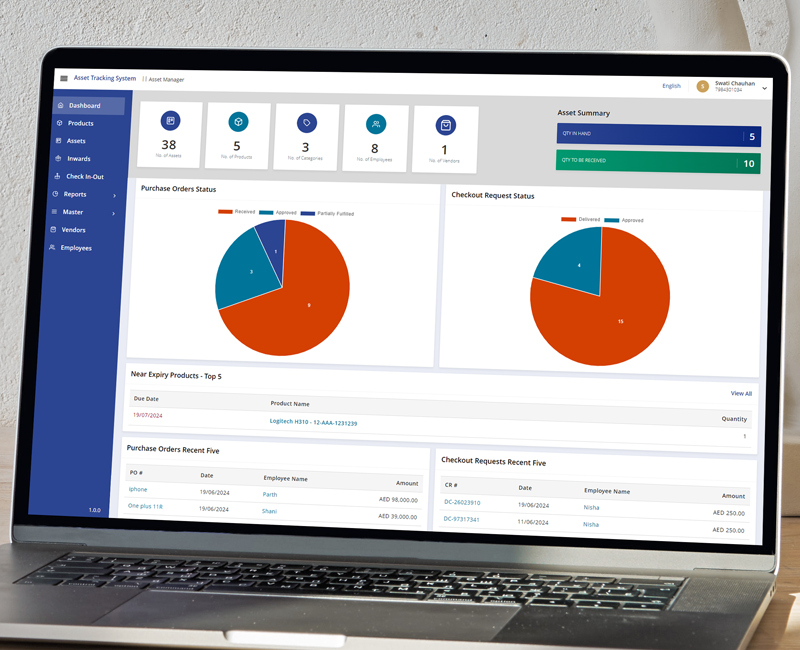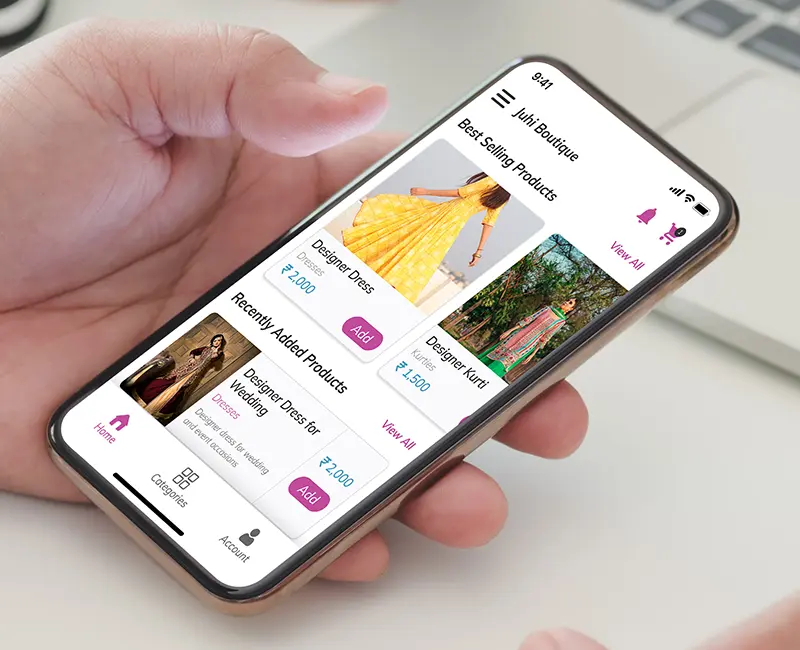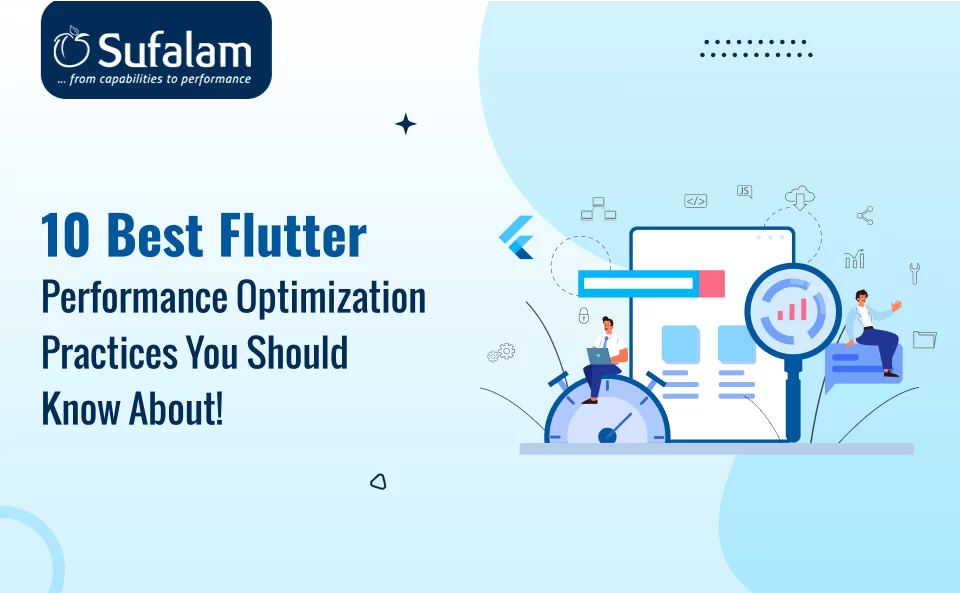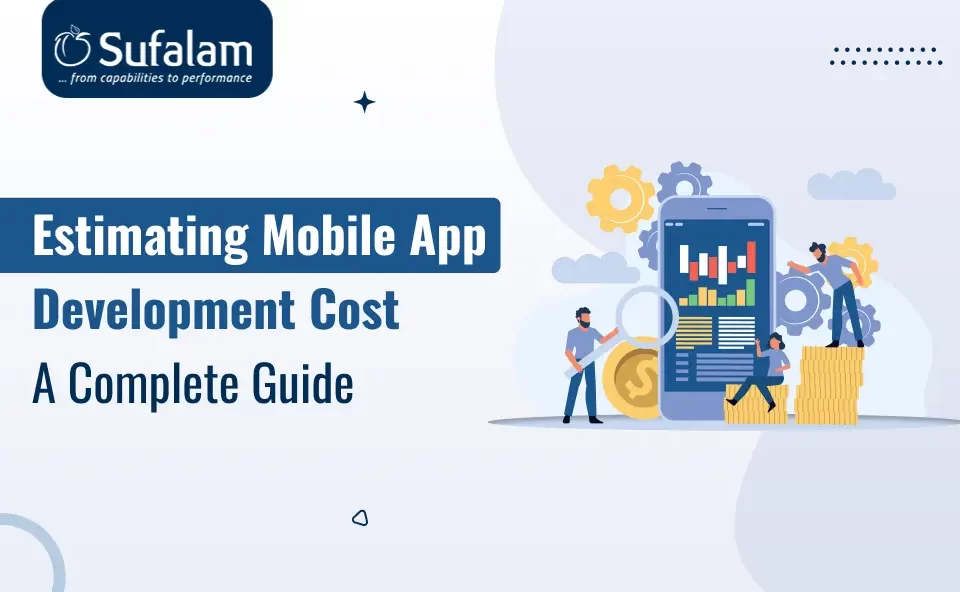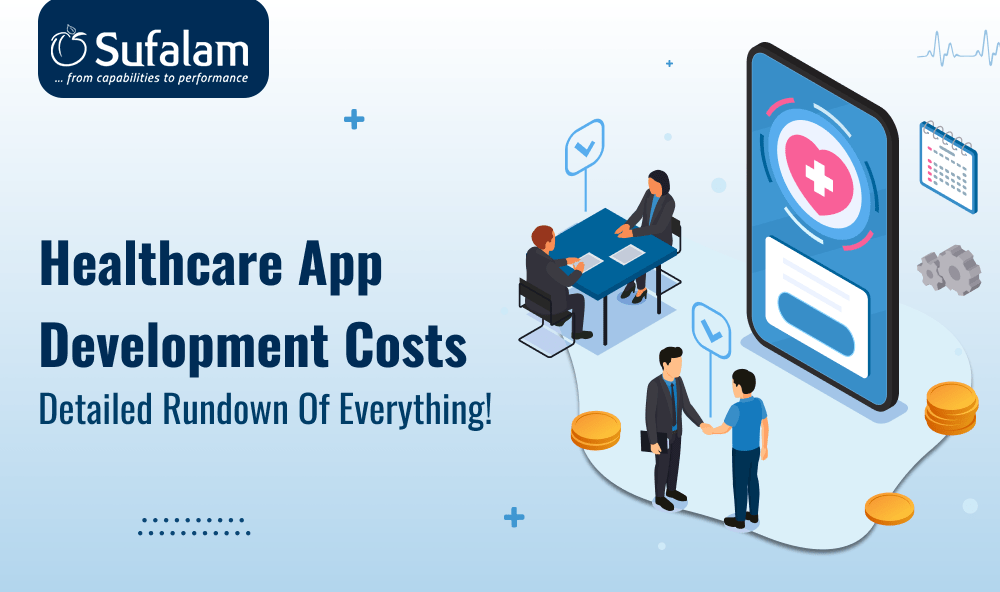
As we all know, digitization has enabled every industry, including healthcare, to provide services to audiences that it could not previously. Ever since, companies have been heavily pushed to adopt a digital transformation in healthcare to run operations efficiently.
By the end of 2023, the global mHealth market is expected to generate $119.5 billion in revenue, and by 2028, it may reach $400 billion. With a CAGR of 27.0% from 2023 to 2028, the digital health market is expanding quickly. This expansion is fueled by the widespread adoption of smart devices and the utilization of digital health services as a convenient mode of healthcare for users worldwide.
If you want to capitalize on this digital trend in your healthcare business and require to figure out the total healthcare app development cost and the factors influencing it, this blog is all you need.
This ultimate guide will tell you everything you need to know about the cost of developing a healthcare app in 2024. Let's dive in and move forward.
What is Healthcare App development?
Healthcare mobile app development is the process of creating an app specifically for the health and well-being of users, which falls under the category of "mobile healthcare applications." With just a few taps on their mobile devices, users of mobile healthcare apps can access a range of medical facilities and information (without physically visiting the place for minor reasons).
With the utmost convenience, these apps allow people with medical conditions or those looking to improve their health to approach their activities more effectively. Healthcare applications are designed to benefit both patients and medical professionals.
These apps can be created for a number of uses, such as administrative work, medical research, patient care, and professional communication between healthcare providers. Healthcare applications can run on a variety of platforms, including mobile devices, tablets, and computers.
Benefits of Healthcare app development!
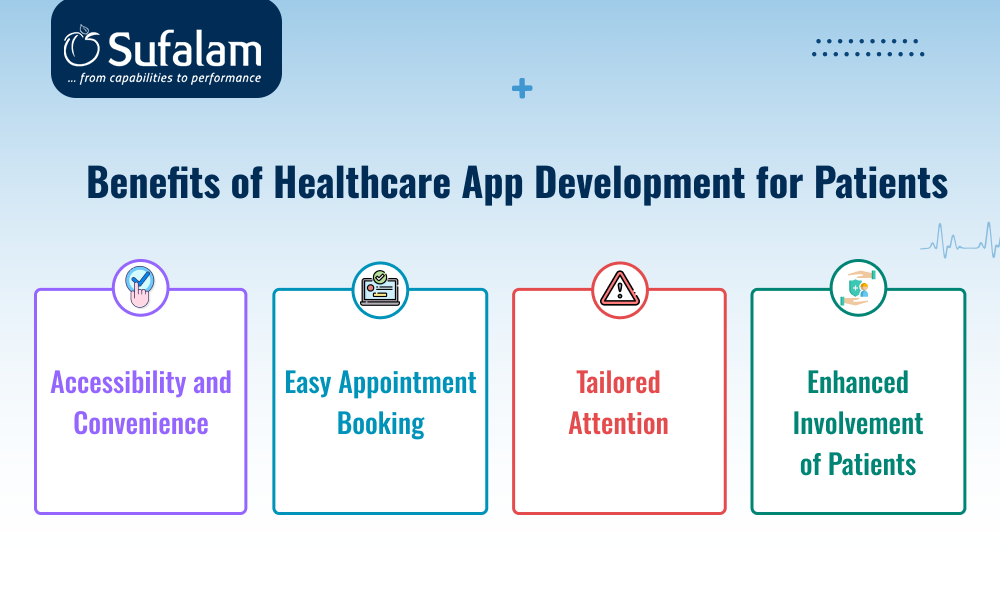
Source: statista
For patients
Accessibility and Convenience: One of the primary advantages of healthcare apps for patients is their convenience and accessibility. Patients can conveniently obtain healthcare services from the comfort of their homes with the help of healthcare apps.
Easy Appointment Booking: Patients can now schedule doctor appointments more easily thanks to healthcare apps. Patients no longer have to endure hours on hold waiting for someone to pick up the phone or wait days for a callback from their doctor.
Tailored Attention: Doctors can give their patients individualized care with the help of healthcare apps. Doctors who have access to a patient's medical history can design personalized treatment plans that guarantee optimal care and treatment for their patients.
Enhanced Involvement of Patients: There is a higher likelihood of patient engagement in their healthcare management when they use healthcare apps. Increased engagement can result in better treatment outcomes and higher patient satisfaction.
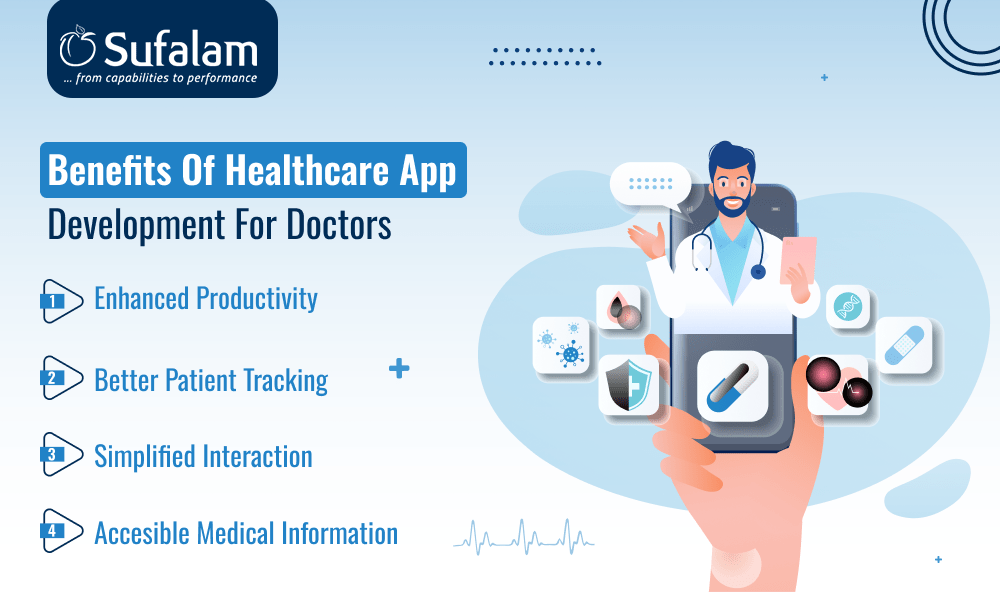
For Doctors
Enhanced Productivity
Healthcare apps can increase the efficiency of healthcare delivery. Healthcare apps provide doctors with real-time access to test results, treatment plans, and patient records. It saves medical professionals a great deal of time and enables them to treat patients more effectively.
Better Patient Tracking
Additionally, healthcare apps can enhance patient monitoring. Doctors can use healthcare apps to monitor their patients' vital signs, symptoms, and medication use. It makes it possible for medical professionals to recognize issues early and take action before they worsen.
Simplified Interaction
Healthcare apps can improve communication between doctors and patients. Physicians can utilize medical applications to notify and remind their patients about appointments and prescriptions. It decreases the number of missed appointments and increases patient adherence to treatment plans.
Accesible Medical Information
Healthcare apps provide doctors with easy access to medical information, medical journals, research papers, and treatment guidelines in real time.
How Much does Healthcare app development costs?
The cost of developing a mobile app can vary dramatically depending on a number of factors. However, you can expect to spend between $40,000 and $100,000 on a basic or medium-complexity healthcare app. The cost of developing a highly complex and enterprise healthcare mobile app is estimated to be between $100,000 and $300,000. It is possible for the number to be more or less.
The intricate nature of the product, the number of features, the vendor's location, the operating system or platform, and a variety of other factors all contribute significantly to the wide range of healthcare app development costs.
So, if you want to get an accurate estimate for the cost of developing a healthcare app, you should contact a top mobile app development company. They will understand your project requirements and provide a custom quote accordingly.
Types of Healthcare Apps
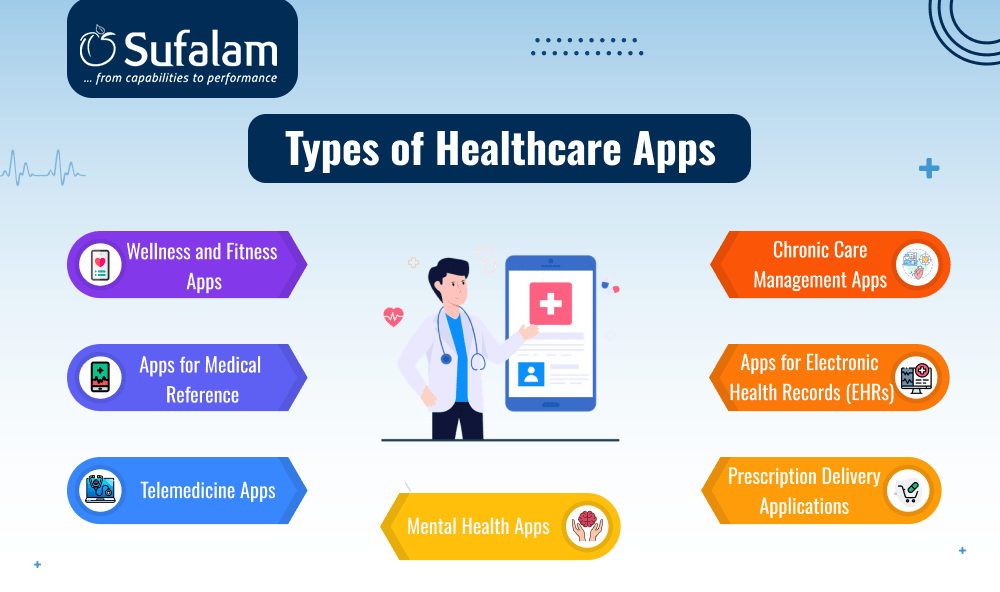
The price of developing a healthcare app can vary significantly depending on the kind of healthcare app you are developing. Let's dig in and find out about the common types of healthcare apps and their costs.
Wellness and Fitness Apps: These applications are usually made to assist users in tracking their exercise objectives, keeping tabs on their activity levels, and controlling their diet. The cost of creating a wellness or fitness app can range between $50,000 and $150,000.
Apps for Medical Reference: Medical reference apps are intended to provide users with information on various medical conditions, treatments, and drugs. These applications can be as basic as reference tools or as sophisticated as diagnostic and treatment support tools. Creating a medical reference app may cost you anywhere from $75,000 to $250,000.
Telemedicine Apps: Telemedicine applications are intended to facilitate remote consultations and patient monitoring. These apps usually have features like secure messaging, video conferencing, and integration with electronic health records. A telemedicine app's development can cost anywhere from $150,000 to $500,000 or more.
Chronic Care Management Apps: These applications are made to help patients control long-term health issues like diabetes, high blood pressure, and heart disease. It has functions like data analytics, symptom tracking, and medication reminders. Creating an app for managing chronic care can cost anywhere from $100,000 to $300,000 or more.
Apps for Electronic Health Records (EHRs): The purpose of EHR apps is to assist healthcare providers in electronically managing patient health records. These apps may include features like patient scheduling, medical charting, billing, and payment processing. The cost of developing an EHR app can range between $500,000 and $1 million or more.
Prescription Delivery Applications: Another kind of healthcare app that has grown in popularity recently is a prescription delivery app. With the help of these apps, customers can order prescription drugs online and have them delivered right to their door. The cost to develop a mobile app for prescriptions delivery can range between $100,000 and $300,000 or more.
Mental Health Apps: Mental health apps aim to help people handle their mental health by offering resources, tools, and support. A simple meditation or mindfulness app can cost between $20,000 and $50,000 to develop, whereas a complex mental health app with features like cognitive behavioral therapy and peer support can cost up to $250,000 or more.
What are the other factors affecting the total healthcare app development cost?
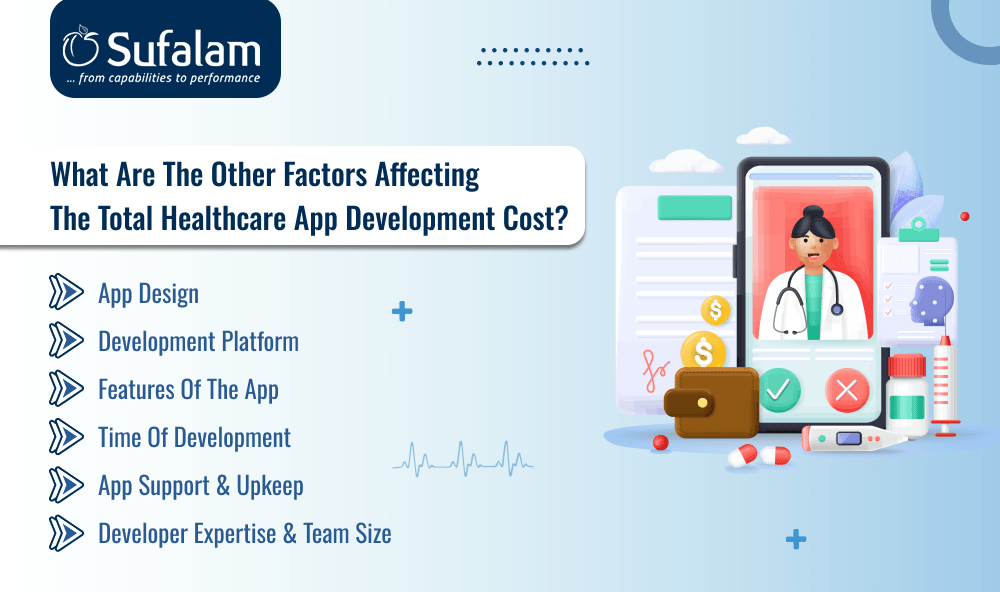
The cost to develop a mobile app can vary depending on a variety of factors. Take a look at the following factors that influence the the healthcare application costs.
App Design: The design stage affects the healthcare application development costs. Whether your app is simple or complex, it takes more time and more imaginative mobile app designers to go from wireframes to user interface. However, creating a health app with a straightforward layout is less expensive than creating an intricate app.
Development Platform: It is the second most significant component affecting the total cost to develop a mobile app. Whichever app development platform you decide on (iOS or Android) will affect the price of your app.
Creating a personalized healthcare application for the iOS platform, for instance, will be less costly than creating one for the Android operating system.
Features of the App: The features and functionalities you incorporate into a trending application for the healthcare sector will largely dictate how much it will cost to develop a mobile app. It implies that the healthcare mobile app development costs with sophisticated features and intricate functionality will be higher than that of creating one with simple features. Thus, ensure that the feature you're integrating is truly essential to your app before adding it.
Time of Development: The price of an app is directly correlated with how long it takes to develop. It implies that one of the key variables influencing healthcare application development expenses is time to market. Project delays or changes in third-party element integrations will result in longer timelines and higher healthcare application development costs.
App Support & Upkeep: The cost of developing a mobile app for medicine also heavily depends on app support and maintenance. The cost of continuing maintenance can vary based on the size of the development team and the application's complexity. Small revisions, such as bug fixes and minor feature modifications, may cost as little as $500 to $1,000, whereas bigger updates requiring substantial development time and resources can cost tens of thousands of dollars.
Developer Expertise & Team Size: The app development company you hire for your healthcare application development needs also affects the total cost of development as well. Their healthcare app developer team size, experience in the industry, location, and other factors have an impact on the total healthcare app development cost.
To Conclude
The healthcare industry is progressing in the same direction as every other industry, capitalizing on the digital transformation in healthcare. To solve issues, mobile app development company must put themselves in the shoes of physicians and patients in order to provide high-quality healthcare services.
Now that you understand everything about healthcare application development, it's time to choose the best mobile app development company in Saudi Arabia.
If you're looking for a team like this, look no further than Sufalam Technologies. You can rely on our expertise in developing mobile health apps that prioritize usability and excellent user experience. Hire dedicated developer from us and bring your ideas to life.
Frequently Asked Questions
What features can drive up the total healthcare app development cost in 2024?
The incorporation of cutting-edge features like blockchain, artificial intelligence, and other technologies will undoubtedly affect the overall cost of developing mobile apps.
What part does compliance play in the process of healthcare mobile app development?
Compliance with established standards and regulations for healthcare guidelines guarantees that the app meets stringent data privacy, security, user interface efficiency, and adaptability criteria.

